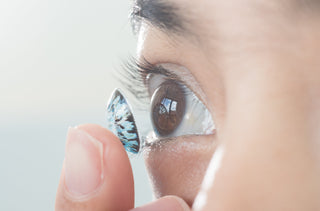A cataract is defined as a loss of transparency of the crystalline lens. Its effect can be compared to looking through a frosted or tinted window. Initially, the opacity may affect only a limited area of the lens and therefore go unnoticed. However, it tends to progress gradually, leading to a reduction in the quality of vision.
Most cataracts are age-related, generally appearing after the age of 50. It is estimated that half of all people aged between 65 and 75 will develop cataracts. This figure rises to 70% for those over 75. If we live long enough, we'll all eventually develop cataracts!
Although most cataracts are related to the natural aging process, other causes are also possible (e.g., exposure to ultraviolet rays, medication, trauma, etc.).
No medication, vitamin supplement or exercise has proven effective in preventing or treating cataracts. Only surgery can provide a definitive cure for this condition.
Cataract symptoms
Cataracts are usually present in both eyes, but it's not uncommon for one eye to be more affected. It generally progresses slowly and manifests itself through several symptoms:
- impression of a veil in front of the eyes
- Sensitivity to light
- glare
- Stretching or halos around lights at night
- Frequent changes in prescription glasses and/or contact lenses
- Temporary improvement in near vision without glasses
- Colours appearing duller or altered
- Double vision with only one eye or ghost-like images around objects
Some of these symptoms may also be associated with other eye conditions. It is, therefore, essential to consult your eye care professional annually or as soon as you notice a significant change in your vision. Early detection is then possible.
When should cataract surgery be performed?
Phacorefractive surgery can be considered when cataracts interfere with daily activities (e.g., driving, reading, watching TV, etc.). It becomes even more relevant if your optometrist can no longer alleviate your symptoms with a new correction in glasses.
There is generally no danger in delaying phacorefractive surgery until you feel ready. However, with modern surgical techniques, removing the lens can be more challenging when the cataract is more advanced. The old belief that cataracts should be allowed to "mature" before removal is no longer valid.
Based on your symptoms, your optometrist will work with you to determine the best time to refer you to an ophthalmologist for cataract surgery.





















































